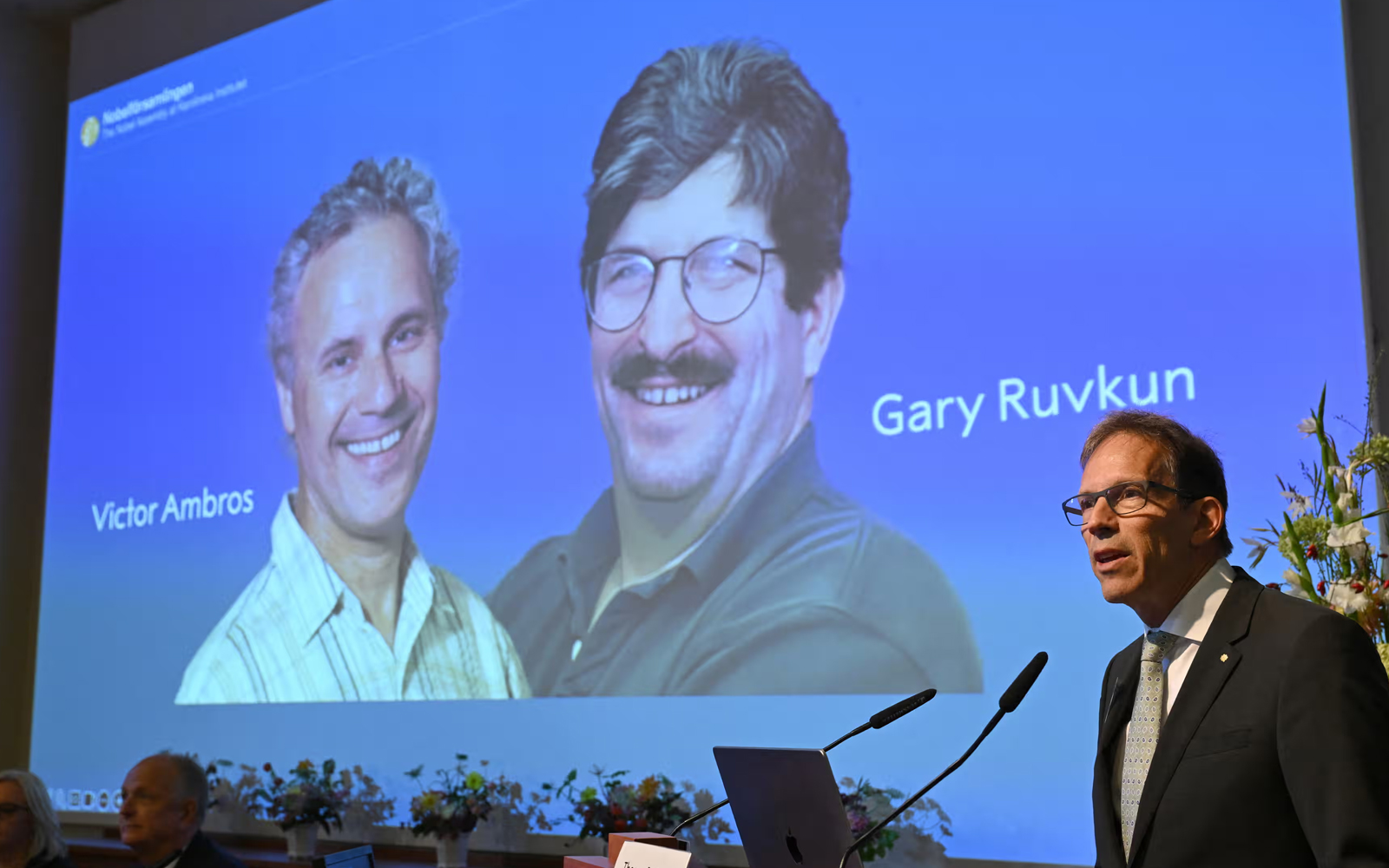
The 2024 Nobel Prize in Physiology or Medicine has been jointly awarded to Americans Victor Ambros and Gary Ruvkun for their groundbreaking discovery of microRNA and its role in post-transcriptional gene regulation.
The Nobel Assembly at the Karolinska Institute in Stockholm made the announcement on Monday morning, with Secretary General Thomas Perlmann revealing the laureates’ names.
The Karolinska Institute, which annually selects the Nobel Prize winners in this category and grants a financial reward of 11 million Swedish kronor (nearly one million euros), hailed the discovery as revolutionary. According to the institute, their work uncovered a previously unknown principle of gene regulation, crucial for multicellular organisms, including humans.
“We now know that the human genome encodes over a thousand microRNAs. This surprising discovery revealed a completely new dimension of gene regulation,” stated the Karolinska Institute.
The institute further explained that genetic information flows from DNA to messenger RNA (mRNA) through a process called transcription, and then to the cell’s protein-making machinery. Proteins are produced using the instructions in the mRNA, which originate from the DNA’s genetic code.
Ambros and Ruvkun conducted their research on a tiny roundworm, Caenorhabditis elegans, which grows to just one millimeter in length. Despite its small size, the worm has a variety of specialized cells, including nerve and muscle cells, similar to those found in higher organisms. The scientists focused on mutated genes that caused incorrect timing in the activation of genetic processes during development. Their research led to the discovery of a new principle of gene regulation via a previously unknown type of RNA—microRNA.
Their findings were first published in two articles in Cell in 1993, but initially went unnoticed by the scientific community. This changed in 2000 when Ruvkun’s team published a paper detailing the discovery of another microRNA in a different gene. Over the following years, researchers identified hundreds of microRNAs.
Today, it is well established that gene regulation by microRNA is essential for multicellular organisms. Without microRNA, cells and tissues cannot develop properly. Abnormal microRNA regulation can contribute to diseases such as cancer. Mutations in genes encoding microRNAs can also lead to congenital conditions affecting vision and hearing.
“This key discovery by Ambros and Ruvkun in C. elegans was unexpected and unveiled a new layer of gene regulation that is vital for all complex life forms,” concluded the Karolinska Institute.


